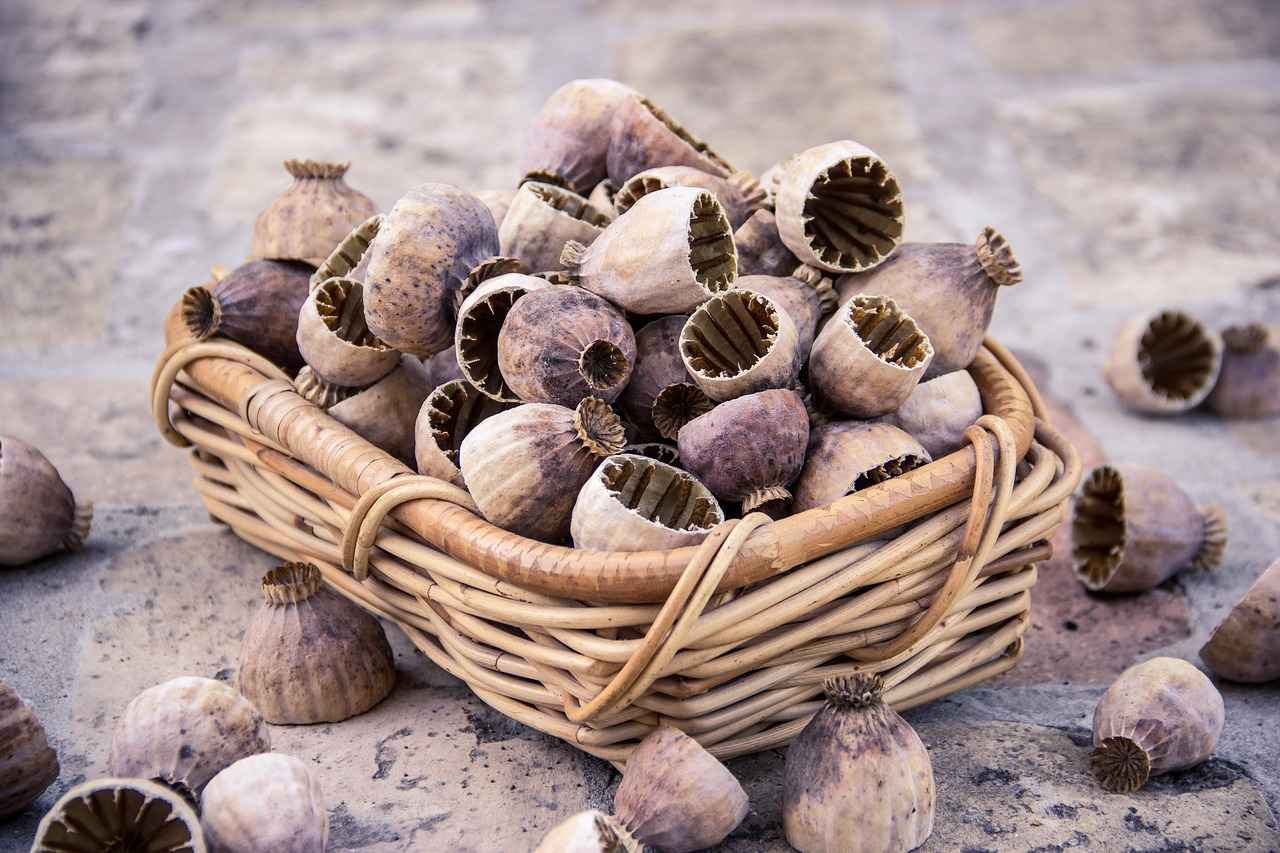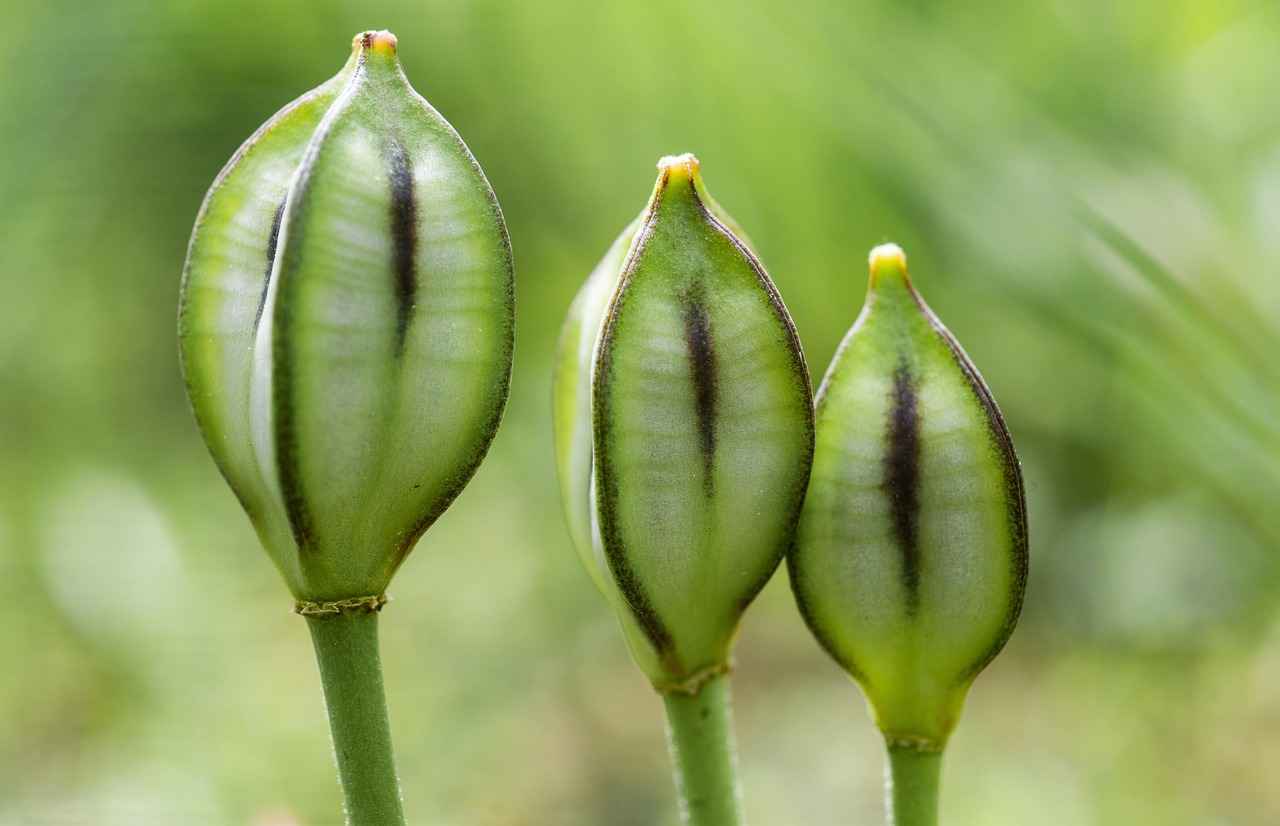Chia seeds have surged in popularity over recent years, emerging as a staple in health-conscious diets. These tiny seeds, packed with nutrients, offer a myriad of health benefits and are incredibly versatile, making them a perfect addition to any pantry. In this article, we will delve into their nutritional profile, explore the numerous health advantages they provide, and suggest various ways to incorporate them into your daily meals.
Chia seeds are small, black or white seeds harvested from the Salvia hispanica plant, which is native to Central America. Historically, these seeds were a vital food source for ancient civilizations, including the Aztecs and Mayans. Today, they are celebrated for their rich nutrient content, especially their high levels of omega-3 fatty acids, fiber, and antioxidants.
These super seeds are a powerhouse of nutrition. A typical serving (about 28 grams) includes:
- 11 grams of fiber – essential for digestive health
- 4 grams of protein – a great plant-based protein source
- 18% of the recommended daily intake of calcium – beneficial for bone health
- 30% of the recommended daily intake of manganese – important for metabolism
- Antioxidants – help combat oxidative stress
The health benefits of chia seeds are extensive:
Yes, chia seeds can aid in weight management. Their high fiber content absorbs water and expands in the stomach, promoting a feeling of fullness and reducing overall calorie intake. This makes them an excellent choice for those looking to manage their weight effectively.
Absolutely. The omega-3 fatty acids found in chia seeds are known to reduce inflammation and lower cholesterol levels, thus contributing to better heart health. Regular consumption may decrease the risk of cardiovascular diseases.
Incorporating chia seeds into your diet is easy and delicious. Here are some practical suggestions:
Chia seeds can be added to a variety of dishes:
- Smoothies: Blend them into your favorite smoothies for added nutrition.
- Puddings: Mix chia seeds with almond milk and let them sit overnight for a nutritious breakfast.
- Baked Goods: Add them to muffins or bread for a nutrient boost.
Yes, chia seeds can replace eggs in many recipes. To make a chia egg, mix one tablespoon of chia seeds with three tablespoons of water and let it sit until it forms a gel-like consistency. This is particularly useful for those following a vegan diet.
While chia seeds are generally safe, consuming them in excessive amounts may lead to digestive discomfort. It is recommended to start with a small quantity and gradually increase your intake while ensuring adequate hydration.
People with certain allergies, particularly those allergic to sesame seeds or other seeds, should exercise caution. Additionally, individuals on blood-thinning medications should consult with a healthcare provider before incorporating chia seeds into their diet.
To maintain freshness, store chia seeds in a cool, dry place in an airtight container. This helps preserve their nutritional quality and extends their shelf life.
In summary, chia seeds are a versatile and nutrient-dense superfood that can easily be integrated into your daily diet. Their numerous health benefits and ease of use make them a valuable addition to any health-conscious kitchen.
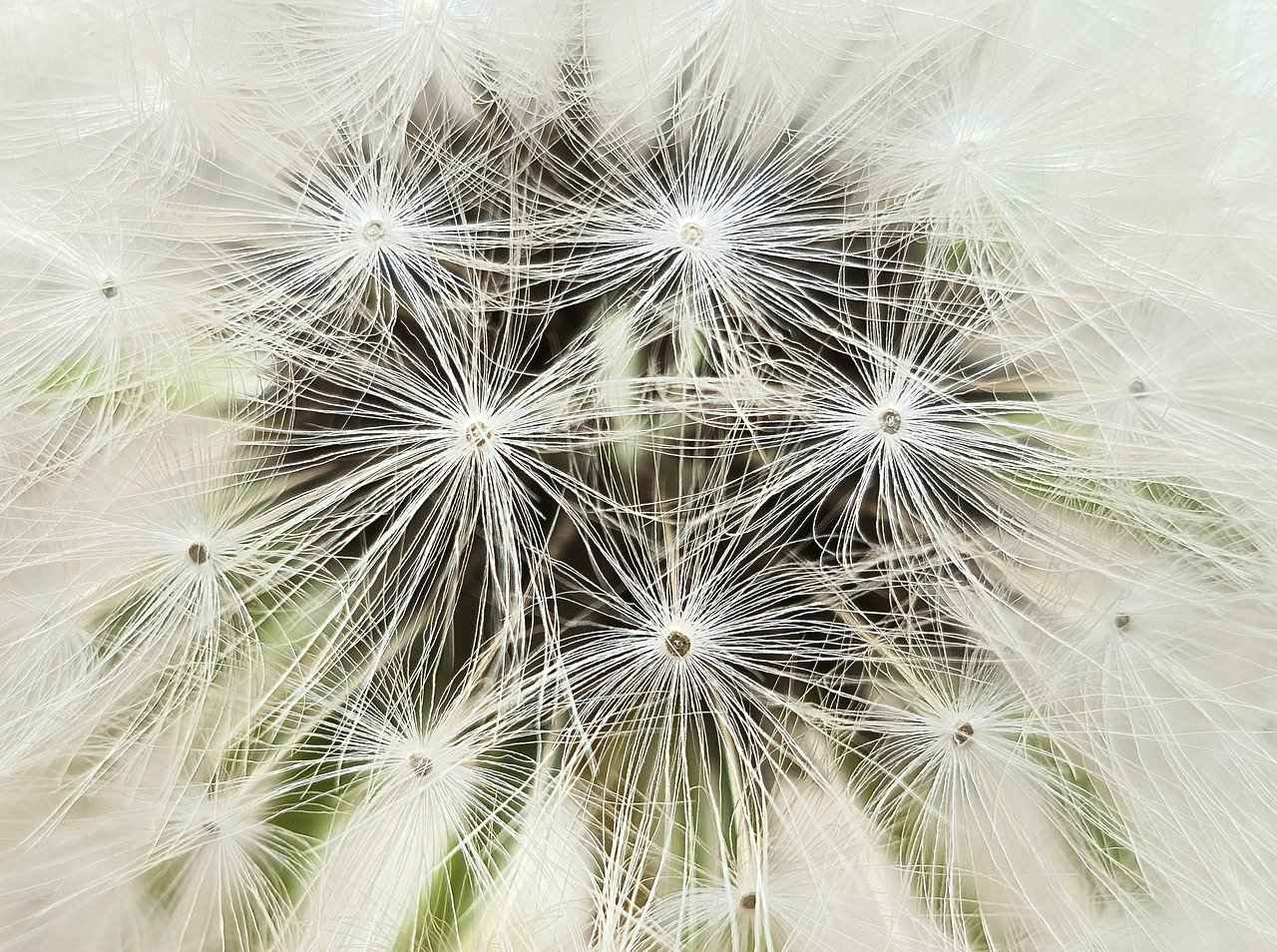
What Are Chia Seeds?
Chia seeds have become increasingly popular in recent years, often hailed as a superfood that packs a powerful nutritional punch. These tiny seeds, derived from the Salvia hispanica plant, are not only rich in essential nutrients but also incredibly versatile in culinary applications. This article delves into the many benefits of chia seeds, their nutritional profile, and how to easily incorporate them into your daily diet.
Chia seeds are small, oval-shaped seeds that originate from the Central American region. They were a staple in the diets of ancient civilizations such as the Aztecs and Mayans, who valued them for their energy-boosting properties. Today, chia seeds are recognized for their impressive nutritional benefits, making them a must-have in modern pantries.
Chia seeds are a powerhouse of nutrients. They are particularly high in:
- Omega-3 fatty acids: Essential for heart health and brain function.
- Fiber: Aids in digestion and promotes a feeling of fullness.
- Protein: Contains all nine essential amino acids, making them a complete protein source.
- Minerals: Rich in calcium, magnesium, and phosphorus.
- Antioxidants: Help combat oxidative stress in the body.
Yes, chia seeds are an excellent source of dietary fiber. One ounce (about 28 grams) of chia seeds contains approximately 11 grams of fiber, which is about one-third of the recommended daily intake for adults. This high fiber content supports digestive health and can help regulate blood sugar levels, making them a beneficial addition to any diet.
Chia seeds offer around 4 grams of protein per ounce. This plant-based protein is especially valuable for those following vegetarian or vegan diets, as it provides a complete amino acid profile. Incorporating chia seeds into meals can help meet daily protein needs without relying solely on animal products.
The health benefits of chia seeds are extensive, ranging from promoting heart health to supporting weight management. Their unique nutrient profile contributes to various bodily functions:
- Heart health: Omega-3 fatty acids in chia seeds help reduce inflammation and lower cholesterol levels.
- Weight management: The high fiber content promotes satiety, potentially reducing overall calorie intake.
- Bone health: Chia seeds are a great source of calcium and phosphorus, essential for maintaining strong bones.
Incorporating chia seeds into your meals is both simple and versatile. Here are a few easy ways to enjoy them:
- Add them to smoothies for a nutrient boost.
- Mix with yogurt or oatmeal for added texture and nutrition.
- Use them in baking, such as in muffins or bread.
- Make chia pudding by soaking them in milk or a dairy alternative overnight.
While chia seeds are generally safe for most people, it’s important to consume them in moderation. Overconsumption can lead to digestive discomfort due to their high fiber content. It’s advisable to drink plenty of water when consuming chia seeds to help them expand and aid digestion.
Individuals with specific allergies or those on certain medications should consult a healthcare provider before adding chia seeds to their diet. This ensures safety and helps avoid any potential adverse effects.
To maintain their freshness, store chia seeds in a cool, dry place in an airtight container. Proper storage extends their shelf life and preserves their nutritional quality, ensuring you get the most benefit from this superfood.
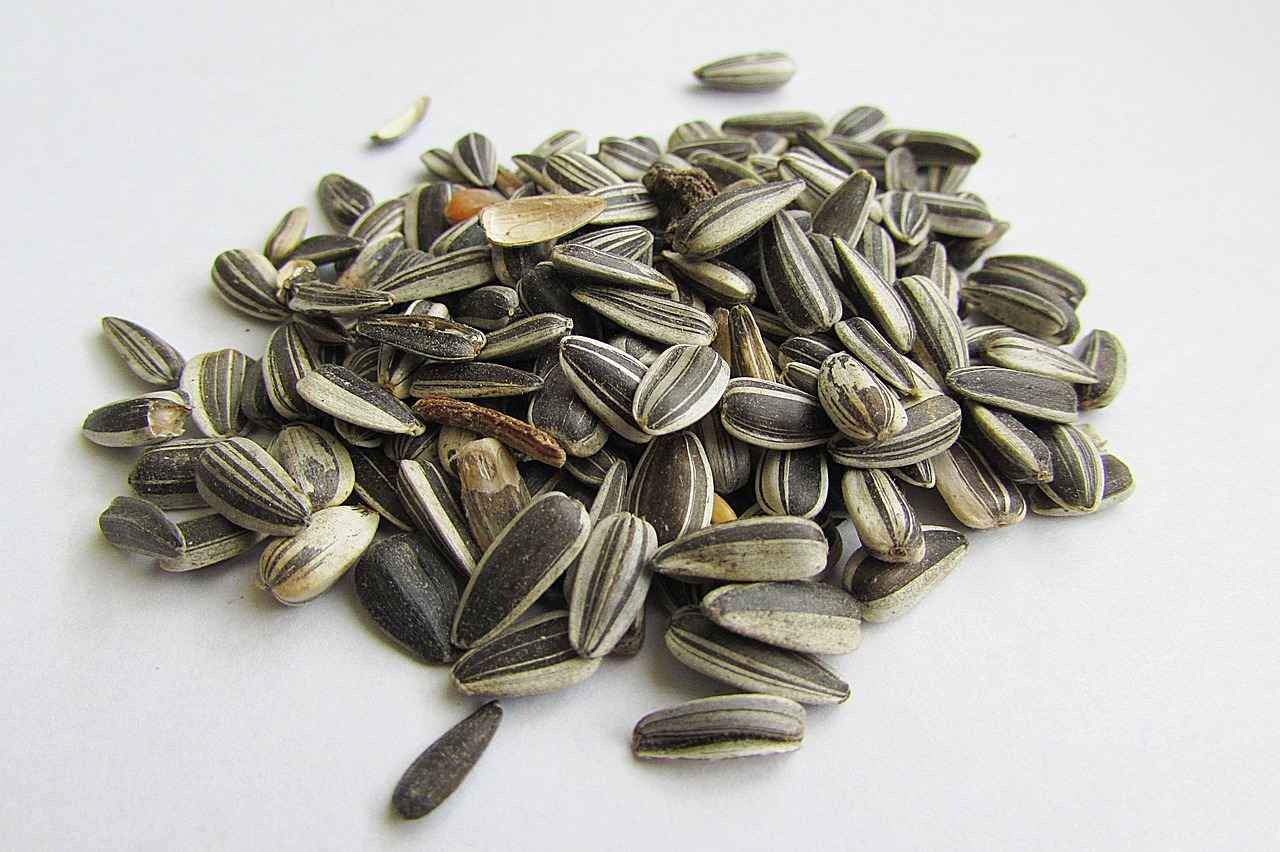
What Nutrients Are Found in Chia Seeds?
Chia seeds have become a staple in health-conscious diets around the world, and for good reason. These tiny seeds are not only versatile in culinary applications but also incredibly rich in essential nutrients. In this section, we will explore the various nutrients found in chia seeds and their significant health benefits.
Chia seeds are considered a superfood due to their impressive nutritional profile. Here’s a closer look at the key nutrients they offer:
- Fiber: Chia seeds are an excellent source of dietary fiber. One ounce (about 28 grams) contains approximately 11 grams of fiber, which is about 42% of the recommended daily intake. This high fiber content aids in digestion and helps maintain a healthy gut.
- Protein: With around 4 grams of protein per ounce, chia seeds provide a plant-based protein source that is especially beneficial for vegetarians and vegans. They contain all nine essential amino acids, making them a complete protein.
- Calcium: Chia seeds are rich in calcium, providing about 18% of the daily recommended intake in just one ounce. This mineral is crucial for maintaining strong bones and teeth.
- Omega-3 Fatty Acids: Chia seeds are one of the best plant-based sources of omega-3 fatty acids, particularly alpha-linolenic acid (ALA). These healthy fats are known for their anti-inflammatory properties and support heart health.
- Antioxidants: Chia seeds contain a variety of antioxidants, including quercetin, chlorogenic acid, and caffeic acid. These compounds help protect the body from oxidative stress and may reduce the risk of chronic diseases.
- Magnesium: This mineral is vital for numerous bodily functions, including muscle and nerve function, blood sugar control, and blood pressure regulation. Chia seeds provide a good amount of magnesium, contributing to overall health.
The unique combination of nutrients in chia seeds contributes to numerous health benefits:
- Promotes Digestive Health: The high fiber content in chia seeds helps regulate bowel movements and prevent constipation, promoting a healthy digestive system.
- Supports Heart Health: Omega-3 fatty acids play a crucial role in reducing inflammation and lowering cholesterol levels, which can lead to improved cardiovascular health.
- Aids in Weight Management: The fiber in chia seeds absorbs water and expands in the stomach, promoting a feeling of fullness that can help control appetite and reduce overall calorie intake.
- Strengthens Bones: The calcium and magnesium found in chia seeds are essential for maintaining bone density and overall skeletal health.
- Boosts Energy Levels: The combination of protein, fiber, and healthy fats in chia seeds provides a sustained energy source, making them an excellent snack for active individuals.
Adding chia seeds to your meals is easy and delicious. Here are some simple ways to incorporate them:
- Smoothies: Blend chia seeds into your morning smoothie for an added nutrient boost.
- Puddings: Mix chia seeds with almond milk and a sweetener of your choice to create a healthy pudding.
- Baked Goods: Add chia seeds to muffins, bread, or energy bars for enhanced nutrition.
- Salads: Sprinkle chia seeds on salads for a crunchy texture and extra nutrients.
In summary, chia seeds are a powerhouse of nutrients that can significantly enhance your health when included in a balanced diet. Their versatility allows for easy incorporation into various meals, making them a must-have in your pantry.
Are Chia Seeds High in Fiber?
Chia seeds are not just a trendy superfood; they are a powerhouse of nutrition, particularly when it comes to dietary fiber. A single ounce (about 28 grams) of these tiny seeds contains approximately 11 grams of fiber, making them one of the richest sources of fiber available. This high fiber content plays a crucial role in promoting digestive health and can significantly aid in weight management.
Fiber is essential for maintaining a healthy digestive system. It helps to regulate bowel movements, reduces the risk of constipation, and promotes a healthy gut microbiome. The soluble fiber found in chia seeds forms a gel-like substance when mixed with water, which can help to slow down digestion. This not only prolongs feelings of fullness but also stabilizes blood sugar levels, making chia seeds an excellent addition to meals for those looking to manage their weight or improve their overall health.
Incorporating chia seeds into your diet is straightforward and versatile. Here are some practical ways to add them to your meals:
- Smoothies: Add a tablespoon of chia seeds to your morning smoothie for an extra fiber boost.
- Puddings: Mix chia seeds with almond milk and let them sit overnight for a delicious and nutritious pudding.
- Baked Goods: Incorporate chia seeds into muffins, bread, or cookies to enhance their fiber content.
- Salads: Sprinkle chia seeds on salads for added crunch and nutrition.
For those who are looking to increase their fiber intake, chia seeds can be a game changer. They can help individuals meet their daily fiber requirements, which is typically around 25-30 grams for adults. By adding chia seeds to your diet, you can easily achieve these goals while enjoying the numerous health benefits they offer.
Moreover, the fiber in chia seeds is primarily soluble fiber, which is known for its ability to absorb water and form a gel-like consistency. This characteristic not only aids in digestion but also helps to lower cholesterol levels and improve heart health. Research has shown that diets high in fiber can reduce the risk of heart disease, type 2 diabetes, and certain types of cancer.
However, it is essential to consume chia seeds in moderation. While they are beneficial, overconsumption can lead to digestive issues such as bloating and gas. It is advisable to start with a small amount, such as one tablespoon, and gradually increase your intake while ensuring you drink plenty of water. This will help your digestive system adjust to the increased fiber.
In conclusion, chia seeds are indeed a remarkable source of dietary fiber, providing numerous health benefits that support digestive health and weight management. Their versatility allows for easy incorporation into various dishes, making them a valuable addition to any diet. Embracing chia seeds can lead to improved overall health and well-being.
How Much Protein Do Chia Seeds Provide?
Chia seeds are often hailed as a superfood due to their impressive nutritional profile. One of the standout features of these tiny seeds is their protein content. In this section, we will explore how much protein chia seeds provide and why this makes them an excellent choice for various dietary needs.
Chia seeds contain approximately 4 grams of protein per ounce. This plant-based protein is particularly beneficial for individuals following vegetarian or vegan diets, as it helps them meet their daily protein requirements without relying on animal sources. Unlike many plant proteins, chia seeds contain all nine essential amino acids, making them a complete protein source.
Protein plays a crucial role in numerous bodily functions, including:
- Muscle Repair: Protein is essential for repairing and building muscle tissue, especially after exercise.
- Immune Function: Antibodies, which help fight infections, are made of proteins.
- Hormone Production: Many hormones are proteins that regulate various physiological processes.
- Enzyme Function: Proteins act as enzymes that facilitate biochemical reactions in the body.
When comparing chia seeds to other common protein sources, they stand out in several ways:
| Protein Source | Protein per Ounce | Complete Protein? |
|---|---|---|
| Chia Seeds | 4 grams | Yes |
| Chicken Breast | 9 grams | Yes |
| Tofu | 3 grams | Yes |
| Peanut Butter | 7 grams | No |
Incorporating chia seeds into your diet is easy and versatile. Here are some practical ways to add them to your meals:
- Smoothies: Blend chia seeds into your favorite smoothie for an added protein boost.
- Puddings: Mix chia seeds with almond milk and let them sit overnight to create a delicious pudding.
- Baked Goods: Add chia seeds to muffins, bread, or energy bars for extra nutrition.
- Salads: Sprinkle chia seeds on salads for added crunch and protein.
While chia seeds are a nutritious addition to any diet, moderation is key. It’s essential to consume them with adequate amounts of water to prevent digestive discomfort. Additionally, individuals with allergies or specific dietary restrictions should consult a healthcare provider before adding chia seeds to their diet.
In summary, chia seeds are a valuable source of plant-based protein, making them an excellent choice for those looking to enhance their protein intake. With their unique nutritional benefits and versatility in recipes, they are indeed a must-have in your pantry.
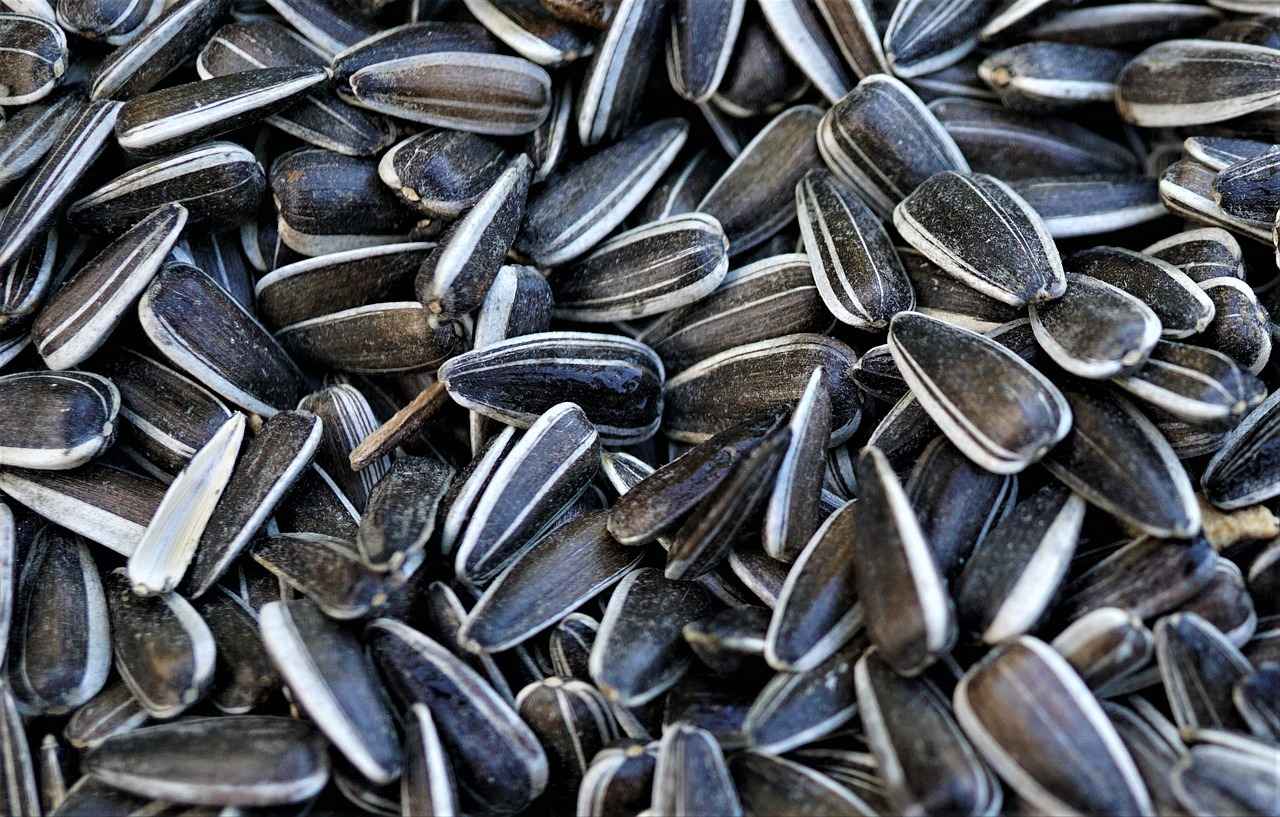
What Are the Health Benefits of Chia Seeds?
Chia seeds, often hailed as a superfood, offer a plethora of health benefits that can significantly enhance your overall well-being. These tiny seeds are not only rich in nutrients but also versatile enough to be included in various dishes. In this section, we will delve deeper into the numerous health benefits of chia seeds, providing you with a comprehensive understanding of why they should be a staple in your diet.
The health benefits of chia seeds are extensive, ranging from heart health to improved digestion. Their unique nutrient profile supports various bodily functions, making them a valuable addition to your daily meals. Here are some of the most notable health benefits:
- Rich in Omega-3 Fatty Acids: Chia seeds are an excellent source of omega-3 fatty acids, which are essential for heart health. These healthy fats help reduce inflammation and lower bad cholesterol levels, contributing to overall cardiovascular wellness.
- High in Fiber: With about 11 grams of fiber per ounce, chia seeds can aid in digestion and promote a feeling of fullness. This high fiber content can assist in weight management by reducing the likelihood of overeating.
- Protein Powerhouse: Chia seeds contain approximately 4 grams of protein per ounce, making them a great plant-based protein source for vegetarians and vegans. Protein is crucial for muscle repair and growth, as well as overall bodily function.
- Bone Health: Chia seeds are rich in calcium, magnesium, and phosphorus, all of which are vital for maintaining strong bones. Including these seeds in your diet can help support bone density and reduce the risk of osteoporosis.
- Antioxidant Properties: These tiny seeds are loaded with antioxidants that help combat oxidative stress in the body. Antioxidants play a crucial role in preventing chronic diseases and promoting overall health.
Many people wonder if chia seeds can assist in weight loss. The answer is yes! The high fiber content in chia seeds absorbs water and expands in your stomach, leading to a prolonged feeling of fullness. This can help reduce overall calorie intake, making it easier to manage your weight when included as part of a balanced diet.
Chia seeds are particularly beneficial for heart health due to their high levels of omega-3 fatty acids. These fatty acids help to lower blood pressure and cholesterol levels, reducing the risk of heart disease. Regular consumption of chia seeds can contribute to a healthier heart and improved cardiovascular function.
Incorporating chia seeds into your diet is simple and versatile. Here are some practical ways to enjoy their benefits:
- Add them to smoothies for a nutrient boost.
- Mix them into yogurt or oatmeal for added texture and nutrition.
- Use them in baking recipes, such as muffins or energy bars.
- Create chia seed pudding by soaking them in almond milk or coconut milk overnight.
While chia seeds are generally safe for most people, it’s important to consume them in moderation. Overconsumption can lead to digestive discomfort due to their high fiber content. Always ensure you drink plenty of water when consuming chia seeds to aid digestion and prevent any adverse effects.
Individuals with specific allergies or those on certain medications should consult a healthcare provider before adding chia seeds to their diet. This precaution ensures safety and helps avoid any potential adverse effects.
To maintain their freshness, store chia seeds in a cool, dry place in an airtight container. Proper storage extends their shelf life and preserves their nutritional quality, allowing you to enjoy the benefits for longer.
Can Chia Seeds Help with Weight Loss?
Chia seeds have become a popular addition to many diets, especially for those looking to manage their weight. This tiny superfood is not only versatile but also packed with nutrients that can support weight loss efforts. In this section, we will delve deeper into how chia seeds can aid in weight management.
One of the primary reasons chia seeds are effective for weight loss is their high fiber content. Each ounce of chia seeds contains about 11 grams of fiber, which is significant considering the daily recommended intake is around 25 grams for women and 38 grams for men. Fiber plays a crucial role in promoting a feeling of fullness, which can help individuals consume fewer calories throughout the day.
When chia seeds are consumed, they absorb liquid and expand in the stomach, creating a gel-like substance. This process not only slows down digestion but also prolongs the sensation of fullness. As a result, individuals may find themselves less inclined to snack between meals or overeat during meals. This natural appetite control can be a powerful tool for those looking to lose weight.
Adding chia seeds to your diet is easy and can enhance the nutritional profile of various dishes. Here are a few simple ways to include them:
- Smoothies: Blend chia seeds into your favorite smoothie for added fiber and protein.
- Puddings: Mix chia seeds with almond milk and let them sit overnight to create a delicious pudding.
- Baked Goods: Incorporate chia seeds into muffins or bread for an extra nutrient boost.
- Salads: Sprinkle chia seeds on salads to add crunch and nutrition.
While many foods claim to assist with weight loss, chia seeds stand out due to their nutritional density. Unlike processed snacks that may be high in calories but low in nutrients, chia seeds provide essential vitamins, minerals, and healthy fats. This makes them a smarter choice for those focused on a balanced diet. Additionally, their versatility allows for easy incorporation into various meals, unlike some weight loss supplements that may be harder to integrate into everyday eating habits.
Several studies have examined the effects of chia seeds on weight loss. Research indicates that individuals who incorporate chia seeds into their diet may experience a reduction in body weight and waist circumference. The fiber-rich nature of chia seeds is believed to contribute significantly to these outcomes. However, it is essential to combine chia seeds with a well-rounded diet and regular physical activity for optimal results.
While chia seeds are generally safe for most people, it is important to consume them in moderation. Overeating chia seeds can lead to digestive issues such as bloating or gas, particularly if not accompanied by adequate hydration. It’s advisable to start with a small amount and gradually increase your intake while ensuring you drink plenty of water.
In conclusion, chia seeds can be a valuable addition to a weight loss regimen due to their high fiber content and ability to promote satiety. By incorporating them into your meals, you can enjoy their numerous health benefits while working towards your weight management goals.
Do Chia Seeds Support Heart Health?
Chia seeds have become increasingly popular as a superfood, and for good reason. These tiny seeds are not only packed with nutrients but also offer a multitude of health benefits, particularly when it comes to heart health. In this section, we will delve deeper into how chia seeds can contribute to cardiovascular wellness.
Chia seeds are one of the richest plant-based sources of omega-3 fatty acids, specifically alpha-linolenic acid (ALA). These essential fats are crucial for maintaining heart health. Omega-3 fatty acids are known for their ability to reduce inflammation, which is a key factor in many heart-related conditions.
Inflammation plays a significant role in the development of heart disease. The omega-3 fatty acids in chia seeds help to lower the production of inflammatory markers in the body. By incorporating chia seeds into your diet, you can potentially mitigate the risk of chronic inflammation, thereby promoting a healthier heart.
Another vital aspect of heart health is maintaining healthy cholesterol levels. Studies suggest that the consumption of chia seeds can lead to a reduction in LDL (bad) cholesterol while potentially increasing HDL (good) cholesterol. This favorable shift in cholesterol levels is essential for reducing the risk of atherosclerosis, a condition characterized by the hardening of arteries.
Chia seeds are also an excellent source of dietary fiber. Just one ounce of chia seeds contains about 11 grams of fiber, which can help lower cholesterol levels and improve overall heart health. High fiber intake is associated with a lower risk of heart disease, as it aids in regulating blood pressure and maintaining a healthy weight.
To reap the heart-healthy benefits of chia seeds, consider adding them to your daily meals. Here are some simple ways to incorporate chia seeds:
- Add them to smoothies for a nutritional boost.
- Sprinkle them on salads for added crunch.
- Mix them into yogurt or oatmeal for a filling breakfast.
- Use them in baking as a substitute for eggs.
While chia seeds are generally safe for most individuals, it’s essential to consume them in moderation. Overconsumption can lead to digestive discomfort due to their high fiber content. It’s also advisable to drink plenty of water when consuming chia seeds to help them expand and aid digestion.
Individuals with specific allergies or those taking medications that affect blood clotting should consult a healthcare provider before adding chia seeds to their diet. This precaution ensures safety and helps avoid any potential adverse effects.
In conclusion, chia seeds are a powerhouse of nutrients that can significantly support heart health. Their rich omega-3 fatty acid content, combined with high fiber levels, makes them an excellent addition to a heart-healthy diet. By incorporating chia seeds into your meals, you can take proactive steps towards improving your cardiovascular wellness.

How Can You Incorporate Chia Seeds into Your Diet?
Incorporating chia seeds into your diet is not only simple but also incredibly versatile. These tiny seeds can be seamlessly added to a variety of dishes, enhancing both their nutritional value and texture. Below, we explore several practical ways to include chia seeds in your meals.
Chia seeds are a powerhouse of nutrients, making them an excellent addition to your daily diet. They are rich in omega-3 fatty acids, fiber, and protein, which support overall health. Their ability to absorb liquid allows them to expand, providing a satisfying texture that can enhance many recipes.
- Smoothies: Add a tablespoon of chia seeds to your favorite smoothie for an extra nutritional boost. They blend well and create a creamy texture.
- Chia Pudding: Mix chia seeds with almond milk or coconut milk and let them sit overnight. This will create a delicious pudding that can be topped with fruits, nuts, or honey.
- Baked Goods: Incorporate chia seeds into muffins, bread, or pancakes. They can add a delightful crunch and enhance the nutritional profile of your baked treats.
- Salads: Sprinkle chia seeds on top of salads for added texture and a nutritional boost. They pair well with leafy greens and dressings.
- Soups and Stews: Add chia seeds to soups and stews as a thickening agent. They absorb liquid and create a heartier consistency.
For those following a vegan diet, chia seeds can serve as an excellent egg substitute. To replace one egg, mix 1 tablespoon of chia seeds with 2.5 tablespoons of water and let it sit for about 10-15 minutes until it forms a gel-like consistency. This mixture can be used in baking recipes, providing structure and moisture.
Start your day off right by adding chia seeds to your breakfast. They can be mixed into oatmeal or yogurt for added fiber and protein. A simple recipe is to combine oats, yogurt, chia seeds, and your choice of fruits for a nutritious breakfast bowl.
Another great way to enjoy chia seeds is by making energy bites. Combine chia seeds with oats, nut butter, honey, and dark chocolate chips. Roll them into small balls and refrigerate for a quick, healthy snack.
Chia seeds can also be used to make a refreshing drink known as chia fresca. Simply mix 1 tablespoon of chia seeds into a glass of water or juice, let it sit for about 10 minutes, and enjoy. This drink not only hydrates but also provides a boost of energy and nutrients.
Incorporating chia seeds into your diet is an easy and effective way to enhance your meals. With their numerous health benefits and versatility, they can be used in a variety of dishes, from smoothies to baked goods. Start experimenting with chia seeds today and discover how they can elevate your culinary creations!
What Are Some Easy Chia Seed Recipes?
Chia seeds are not only a powerhouse of nutrients but also a versatile ingredient that can elevate a variety of dishes. Their unique ability to absorb liquid and form a gel-like consistency makes them a fantastic addition to both sweet and savory recipes. Here are some easy and delicious ways to incorporate chia seeds into your meals.
One of the simplest ways to enjoy chia seeds is by adding them to your smoothies. They blend seamlessly into the mixture, providing a thick, creamy texture without altering the flavor. To make a chia seed smoothie, follow this basic recipe:
- 1 cup of your favorite fruit (banana, berries, or mango)
- 1 cup of almond milk or any milk of your choice
- 1 tablespoon of chia seeds
- Optional: a scoop of protein powder or spinach for added nutrition
Simply blend all the ingredients until smooth. The chia seeds will thicken the smoothie, making it satisfying and filling.
Chia seed pudding is a popular and easy dessert that can be customized to your taste. The basic recipe involves:
- 1/4 cup of chia seeds
- 1 cup of milk (dairy or plant-based)
- 1 tablespoon of sweetener (honey, maple syrup, or agave)
- 1/2 teaspoon of vanilla extract
Mix all the ingredients in a bowl or jar, stir well, and let it sit in the refrigerator for a few hours or overnight. The result is a creamy, satisfying pudding that can be topped with fruits, nuts, or granola.
Chia seeds can also be incorporated into baked goods, adding nutritional value without compromising taste. They can be added to:
- Pancakes
- Muffins
- Granola bars
For example, when making pancakes, simply add 2 tablespoons of chia seeds to your pancake batter. This not only enhances the texture but also boosts the fiber and protein content.
If you love jam but want a healthier option, chia seed jam is the answer. It’s incredibly easy to make:
- 2 cups of fresh or frozen fruit
- 2 tablespoons of chia seeds
- 1 tablespoon of sweetener (optional)
Cook the fruit in a saucepan until it breaks down, then stir in the chia seeds and sweetener. Let it cool, and you’ll have a nutritious jam that can be spread on toast or used in desserts.
For those following a vegan diet, chia seeds can serve as a fantastic egg substitute in baking. To replace one egg, mix:
- 1 tablespoon of chia seeds
- 3 tablespoons of water
Let the mixture sit for about 10 minutes until it forms a gel-like consistency, then use it in your recipes just like you would with an egg.
Incorporating chia seeds into your diet is not only easy but also adds a wealth of nutrients to your meals. From smoothies and puddings to baked goods and jams, the possibilities are endless. Experiment with these recipes and enjoy the numerous health benefits that chia seeds have to offer!
Can Chia Seeds Be Used as an Egg Substitute?
Chia seeds have emerged as a versatile ingredient in the culinary world, particularly for those following a plant-based diet. One of the most remarkable uses of chia seeds is their ability to serve as an effective vegan egg substitute. This article delves into how chia seeds can replace eggs in recipes and the benefits of using them in your cooking.
To use chia seeds as an egg substitute, you simply need to create a mixture known as chia gel. This is done by combining one tablespoon of chia seeds with three tablespoons of water. Allow the mixture to sit for about 15 minutes until it achieves a gel-like consistency. This gel can replace one egg in most recipes, making it an ideal option for baking, binding, and thickening.
- Nutritional Value: Chia seeds are rich in omega-3 fatty acids, fiber, and protein, offering a nutrient profile that many other substitutes lack.
- Allergen-Friendly: Unlike some common egg substitutes, such as flaxseeds or commercial egg replacers, chia seeds are less likely to trigger allergies.
- Versatility: Chia gel can be used in a variety of recipes, from pancakes to cookies, and even in savory dishes.
Using chia seeds in place of eggs not only caters to those following a vegan lifestyle but also enhances the overall nutritional content of your meals. Here are some key benefits:
- Increased Fiber: Chia seeds are an excellent source of dietary fiber, which can help improve digestive health.
- Improved Texture: The gel created by chia seeds can add moisture and a unique texture to baked goods, making them more enjoyable.
- Heart Health: The omega-3 fatty acids in chia seeds support cardiovascular health, making your meals both delicious and heart-friendly.
While chia seeds offer numerous advantages, there are some limitations to consider:
- Texture Variations: In some recipes, particularly those that require the leavening properties of eggs, chia seeds may not perform as effectively.
- Flavor Considerations: Although chia seeds have a mild flavor, they can alter the taste of certain dishes, especially if used in large quantities.
Chia seeds can be seamlessly incorporated into a variety of recipes. Here are some popular options:
- Baked Goods: Muffins, brownies, and cookies can all benefit from the moisture and binding properties of chia gel.
- Pancakes and Waffles: Adding chia gel to your batter can enhance texture and nutritional value.
- Meat Alternatives: Chia seeds can also be used in veggie burgers and meatballs to help bind ingredients together.
In conclusion, chia seeds are a fantastic alternative to eggs, offering both nutrition and versatility in the kitchen. Their ability to create a gel-like consistency makes them suitable for a variety of recipes, allowing vegans and those with egg allergies to enjoy delicious meals without compromising on taste or texture. Whether you’re baking, cooking, or experimenting with new dishes, consider incorporating chia seeds into your culinary repertoire for a healthier, plant-based option.

Are There Any Side Effects of Consuming Chia Seeds?
Chia seeds have become a popular superfood in recent years, celebrated for their numerous health benefits. However, as with any food, it is important to consider the potential side effects that may arise from their consumption. In this section, we will explore the possible side effects of chia seeds and provide guidance on safe consumption practices.
While chia seeds are generally considered safe for most individuals, overconsumption can lead to some unpleasant digestive issues. Here are some common side effects:
- Digestive Discomfort: Consuming too many chia seeds can cause bloating, gas, and abdominal pain. This is primarily due to their high fiber content.
- Choking Hazard: Chia seeds can absorb a significant amount of liquid, expanding in size. If they are not adequately hydrated before consumption, they may pose a choking risk, especially when eaten dry.
- Allergic Reactions: Although rare, some individuals may have an allergy to chia seeds, leading to symptoms such as rashes, itching, or gastrointestinal distress.
To avoid potential side effects, it is crucial to consume chia seeds in moderation. A typical serving size is about 1-2 tablespoons per day. This amount is generally well-tolerated and provides the nutritional benefits without overwhelming the digestive system.
Chia seeds can absorb up to 12 times their weight in water. Therefore, it is essential to drink plenty of water when consuming chia seeds to prevent digestive discomfort. Adequate hydration helps ensure that the seeds expand properly in the stomach and aids in digestion.
Certain individuals should approach chia seeds with caution:
- People with Digestive Issues: Those with pre-existing gastrointestinal conditions, such as irritable bowel syndrome (IBS), may experience exacerbated symptoms when consuming high-fiber foods like chia seeds.
- Individuals on Blood Thinners: Chia seeds are high in omega-3 fatty acids, which can have a blood-thinning effect. Individuals on anticoagulant medications should consult their healthcare provider before adding chia seeds to their diet.
- Pregnant or Nursing Women: While chia seeds can be nutritious, pregnant or nursing women should seek advice from a healthcare professional to ensure they are safe for their specific circumstances.
To enjoy the benefits of chia seeds while minimizing the risk of side effects, consider the following tips:
- Start Small: If you are new to chia seeds, begin with a small amount and gradually increase your intake as your body adjusts.
- Soak Before Eating: Soaking chia seeds in water, juice, or smoothies allows them to expand and makes them easier to digest.
- Combine with Other Foods: Mix chia seeds into yogurt, oatmeal, or smoothies to enhance texture and flavor while ensuring proper hydration.
In summary, while chia seeds are a nutritious addition to your diet, being aware of their potential side effects is essential for safe consumption. By following recommended serving sizes and ensuring proper hydration, you can enjoy the many benefits of this superfood without discomfort.
Who Should Avoid Chia Seeds?
Chia seeds are often hailed as a superfood, packed with nutrients and health benefits. However, like any food, they may not be suitable for everyone. Understanding who should avoid chia seeds is crucial for ensuring safety and preventing adverse effects.
Individuals with specific allergies should exercise caution when considering chia seeds. Chia seeds belong to the mint family, which means that those who are allergic to mint or other related plants may also react to chia seeds. Symptoms of an allergic reaction can range from mild to severe, including rashes, digestive issues, or even anaphylaxis in extreme cases. It is essential for individuals with known allergies to consult a healthcare provider before introducing chia seeds into their diet.
Chia seeds have the potential to interact with certain medications. Individuals taking anticoagulants or blood thinners should be particularly cautious, as chia seeds are high in omega-3 fatty acids, which can enhance the effects of these medications and increase the risk of bleeding. Similarly, those on medications for diabetes should be aware that chia seeds can lower blood sugar levels, possibly leading to hypoglycemia if not monitored closely.
Chia seeds are renowned for their high fiber content, which can be beneficial for digestive health. However, overconsumption can lead to digestive discomfort, including bloating, gas, or constipation. Individuals with pre-existing digestive issues, such as irritable bowel syndrome (IBS) or inflammatory bowel disease (IBD), should consult a healthcare professional before adding chia seeds to their diet, as the high fiber content may exacerbate their symptoms.
For pregnant or breastfeeding women, it is advisable to consult a healthcare provider before consuming chia seeds. While chia seeds are generally considered safe, the nutritional needs during pregnancy and lactation are unique, and it is crucial to ensure that any new food introduced into the diet is appropriate and beneficial.
Children, particularly those under the age of 5, may also need to be cautious with chia seeds. Due to their small size and potential choking hazard, it is recommended to serve chia seeds in a gelled form or mixed into foods to prevent any risk of choking. Parents should consult with a pediatrician before introducing chia seeds into their child’s diet.
Before adding chia seeds to your diet, it is always wise to consult with a healthcare provider, especially if you have any underlying health conditions or concerns. A healthcare professional can provide personalized advice based on your health history and dietary needs, ensuring that you can safely enjoy the benefits of chia seeds without risking adverse effects.
In summary, while chia seeds offer numerous health benefits, certain individuals may need to avoid them or seek medical advice before incorporating them into their diet. By understanding these considerations, you can make informed choices that align with your health and well-being.
How to Store Chia Seeds for Maximum Freshness?
When it comes to maintaining the freshness and nutritional quality of chia seeds, proper storage is crucial. These tiny seeds are not only packed with essential nutrients but also have a relatively long shelf life if stored correctly. In this section, we will explore the best practices for storing chia seeds to ensure they remain fresh and beneficial for your health.
Chia seeds are sensitive to moisture, light, and heat, which can lead to spoilage and a decline in their nutritional value. Storing them improperly can result in rancidity, loss of flavor, and a decrease in their health benefits. Therefore, understanding the best storage methods is essential for anyone looking to incorporate chia seeds into their diet.
- Use an Airtight Container: Always store chia seeds in an airtight container to prevent exposure to air and moisture. Glass jars or high-quality plastic containers with tight-sealing lids work well.
- Choose a Cool, Dark Place: Keep your chia seeds in a cool, dark place away from direct sunlight. A pantry or a cupboard is ideal, as it helps maintain a stable temperature.
- Avoid Humidity: Moisture can cause chia seeds to clump together and spoil. Ensure the storage area is dry and consider using silica gel packets to absorb any excess moisture if necessary.
- Refrigeration for Extended Freshness: For long-term storage, consider placing chia seeds in the refrigerator. This can significantly extend their shelf life, keeping them fresh for up to two years.
When stored properly, chia seeds can last for two to four years. However, it is essential to check for any signs of spoilage, such as an off smell or changes in texture, before consumption. If they smell rancid or have a strange taste, it’s best to discard them.
Yes, you can freeze chia seeds to prolong their freshness. Just be sure to use an airtight container to prevent freezer burn. When you’re ready to use them, simply take out the desired amount and allow them to thaw at room temperature.
It’s important to be aware of the signs that indicate chia seeds may have gone bad:
- Odor: A rancid or off smell is a clear indicator that the seeds are no longer fresh.
- Texture: If the seeds feel sticky or clump together, they may have absorbed moisture and are likely spoiled.
- Color: Discoloration or fading of the seeds can also indicate that they are past their prime.
By following these storage guidelines, you can ensure that your chia seeds remain fresh and nutritious for an extended period. Remember, proper storage not only preserves their health benefits but also enhances your culinary experience when incorporating them into various dishes. With the right care, chia seeds can be a delightful and healthful addition to your pantry.
Frequently Asked Questions
- What are chia seeds and why should I use them?
Chia seeds are tiny, nutrient-packed seeds from the Salvia hispanica plant. They’re a powerhouse of omega-3 fatty acids, fiber, and protein, making them a fantastic addition to your diet for overall health and wellness.
- Can chia seeds help with weight loss?
Absolutely! Thanks to their high fiber content, chia seeds can help you feel full longer, which may reduce overall calorie intake. Incorporating them into your meals can be a simple strategy for weight management.
- How do I use chia seeds in my cooking?
Chia seeds are incredibly versatile! You can sprinkle them on smoothies, mix them into yogurt, or use them in baking. They also work great as a thickener in puddings or as an egg substitute in vegan recipes.
- Are there any side effects of consuming chia seeds?
While chia seeds are safe for most, eating too many can lead to digestive discomfort. It’s best to start with a small amount and drink plenty of water to help with digestion.
- How should I store chia seeds?
To keep your chia seeds fresh, store them in an airtight container in a cool, dry place. This will help preserve their nutritional quality and extend their shelf life.
